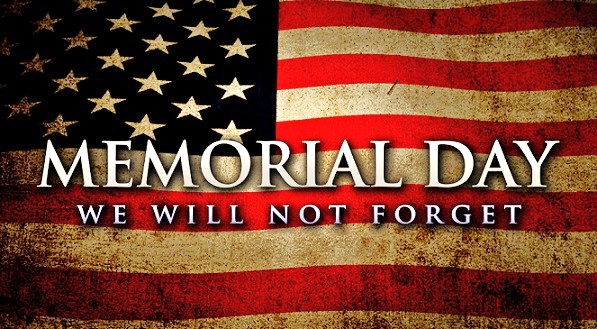Memorial Day was first widely observed in May 1868. The celebration commemorated the sacrifices of the Civil War and the proclamation was made by General John A Logan. Following the proclamation, participants decorated graves of more than 20,000 Union and Confederate soldiers.
In years since World War 1, the day has become a celebration of honor for those who died in all America’s wars, as well as those who are Veterans and current members of the US military. In 1971, Memorial Day was declared a national holiday.
The following passages are from President Ronald Reagan’s 1986 Memorial Day speech at Arlington National Cemetery.
“Today is the day we put aside to remember fallen heroes and to pray that no heroes will ever have to die for us again. It’s a day of thanks for the valor of others, a day to remember the splendor of America and those of her children who rest in this cemetery and others. It’s a day to be with the family and remember.
Here in Arlington rests a sharecropper’s son who became a hero to a lonely people. Joe Louis came from nowhere, but he knew how to fight. And he galvanized a nation in the days after Pearl Harbor when he put on the uniform of his country and said, ‘I know we’ll win because we’re on God’s side.’ Audie Murphy is here, Audie Murphy of the wild, wild courage. For what else would you call it when a man bounds to the top of a disabled tank, stops an enemy advance, saves lives, and rallies his men, and all of it single-handedly. When he radioed for artillery support and was asked how close the enemy was to his position, he said, ‘Wait a minute and I’ll let you speak to them.
Michael Smith is here, and Dick Scobee, both of the space shuttle Challenger. Their courage wasn’t wild, but thoughtful, the mature and measured courage of career professionals who took prudent risks for great reward—in their case, to advance the sum total of knowledge in the world. They’re only the latest to rest here; they join other great explorers with names like Grissom and Chaffee.
Oliver Wendell Holmes is here, the great jurist and fighter for the right. A poet searching for an image of true majesty could not rest until he seized on ‘Holmes dissenting in a sordid age.’ Young Holmes served in the Civil War. He might have been thinking of the crosses and stars of Arlington when he wrote: ‘At the grave of a hero we end, not with sorrow at the inevitable loss, but with the contagion of his courage; and with a kind of desperate joy we go back to the fight.
All of these men were different, but they shared this in common: They loved America very much. There was nothing they wouldn’t do for her. And they loved with the sureness of the young. It’s hard not to think of the young in a place like this, for it’s the young who do the fighting and dying when a peace fails and a war begins. Not far from here is the statue of the three servicemen—the three fighting boys of Vietnam. It, too, has majesty and more. Perhaps you’ve seen it—three rough boys walking together, looking ahead with a steady gaze. There’s something wounded about them, a kind of resigned toughness. But there’s an unexpected tenderness, too. At first you don’t really notice, but then you see it. The three are touching each other, as if they’re supporting each other, helping each other on.
And we owe them something, those boys. We owe them first a promise: That just as they did not forget their missing comrades, neither, ever, will we. And there are other promises. We must always remember that peace is a fragile thing that needs constant vigilance. We owe them a promise to look at the world with a steady gaze and, perhaps, a resigned toughness, knowing that we have adversaries in the world and challenges and the only way to meet them and maintain the peace is by staying strong.
That, of course, is the lesson of this century, a lesson learned in the Sudetenland, in Poland, in Hungary, in Czechoslovakia, in Cambodia. That’s the lesson of this century and, I think, of this day. And that’s all I wanted to say. The rest of my contribution is to leave this great place to its peace, a peace it has earned.”
The READ Center recognizes and honors all who have given their lives so we may live in freedom and peace. Thank you.


